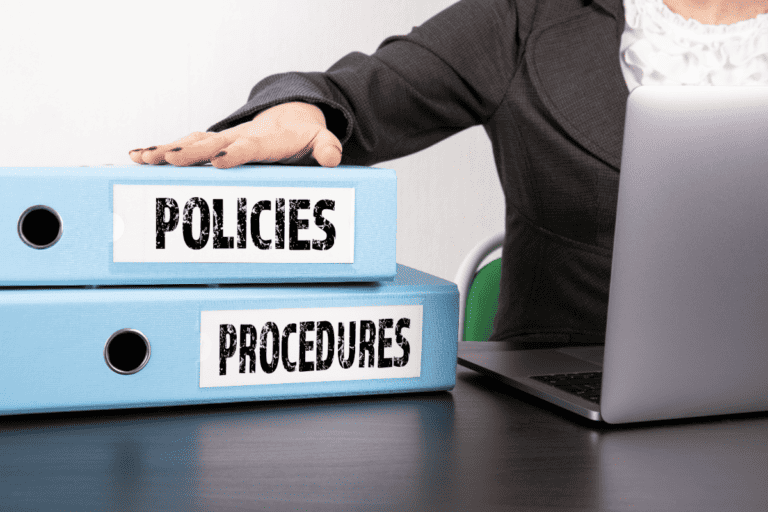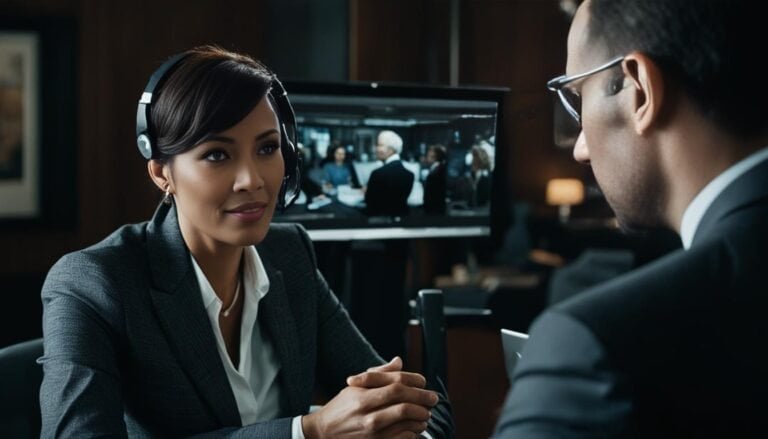Facilitating Effective Group Discussions and Workshops
Facilitating effective group discussions and workshops is a key skill for professionals across various fields. The ability to guide and manage group interactions can significantly impact the outcome of meetings, training sessions, and collaborative projects.
Effective facilitation involves creating an environment that encourages active participation, open communication, and constructive dialogue. This includes setting clear objectives, establishing ground rules, and managing group dynamics to ensure productive outcomes.
By employing facilitation techniques, such as active listening, conflict resolution, and brainstorming, facilitators can help groups generate innovative ideas and make informed decisions.
Additionally, ongoing evaluation and reflection on the facilitation process can lead to continuous improvement and enhanced outcomes.
Key Takeaways
- Effective facilitation directly impacts the productivity and outcomes of group discussions and workshops.
- Creating a supportive and inclusive environment encourages all participants to contribute and collaborate.
- Engaging participants and fostering collaboration maximizes collective intelligence.
- Techniques such as brainstorming and considering alternative perspectives promote innovation.
Importance of Effective Facilitation
The importance of effective facilitation cannot be overstated, as it directly impacts the productivity and outcomes of group discussions and workshops. Facilitation techniques play a crucial role in guiding and managing group dynamics to ensure that discussions are fruitful and objectives are met. Effective facilitation involves creating a supportive and inclusive environment where all participants feel encouraged to contribute and collaborate. This can be achieved through active listening, summarizing key points, and asking open-ended questions to promote critical thinking and meaningful dialogue.
Moreover, understanding group dynamics is essential for effective facilitation. A facilitator must be adept at recognizing and addressing different communication styles, conflicts, and power dynamics within the group. By doing so, they can steer the discussion towards constructive outcomes and maintain a balanced participation from all members.
Additionally, being able to adapt facilitation techniques to suit the specific needs and goals of each group is paramount. This may involve varying approaches such as brainstorming sessions, icebreakers, or consensus-building activities to stimulate creativity and engagement.
Ultimately, effective facilitation is a skill that requires a deep understanding of human interaction, communication, and group psychology to ensure the success of group discussions and workshops.
Setting the Stage for Success
To lay the groundwork for success, facilitators should begin by establishing clear objectives and expectations for the group discussion or workshop. This sets the tone and direction for the session, ensuring that all participants are aligned and focused on the intended outcomes.
In addition to setting objectives, facilitators should also establish norms for participation and interaction. These norms create a framework for how the group will engage with one another, promoting respect, active listening, and constructive dialogue.
Lastly, creating buy-in from the participants is essential for the success of the discussion or workshop. Facilitators can achieve this by clearly communicating the relevance and importance of the session, as well as by actively involving participants in the planning process. When participants feel that their input is valued and that the session directly relates to their needs and goals, they are more likely to fully engage and contribute to the collective success of the group discussion or workshop.
Engaging Participants and Fostering Collaboration
Facilitators should continue to build on the groundwork laid in the previous subtopic by actively engaging participants and fostering collaboration throughout the group discussion or workshop. Active participation is essential for a successful group discussion or workshop. To achieve this, facilitators can employ various strategies to encourage engagement, such as asking open-ended questions, encouraging all participants to share their thoughts, and actively listening to their contributions. Additionally, fostering collaboration among participants is crucial to create group synergy and maximize the collective intelligence of the group. This can be achieved by incorporating interactive activities, group exercises, and team-based projects that require participants to work together towards a common goal. By fostering collaboration, facilitators can create an environment where diverse perspectives are valued, and participants feel motivated to contribute actively. Below is a table illustrating some effective strategies for engaging participants and fostering collaboration:
| Strategies for Engaging Participants and Fostering Collaboration | ||
|---|---|---|
| Ask open-ended questions | Encourage all participants to share their thoughts | Incorporate interactive activities |
| Actively listen to participants’ contributions | Foster collaboration among participants | Implement group exercises and team-based projects |
Managing Challenging Dynamics
When managing challenging dynamics in group discussions and workshops, it is essential to address conflicting opinions and encourage respectful communication. This involves creating a safe and inclusive environment where all participants feel heard and valued.
Additionally, setting ground rules for communication and actively mediating conflicts can help maintain a productive and positive atmosphere.
Addressing Conflicting Opinions
How can facilitators effectively manage conflicting opinions in group discussions and workshops to ensure productive outcomes?
When faced with conflicting opinions, facilitators can employ several strategies to help resolve disagreements and find common ground:
-
Establishing ground rules: Setting guidelines for respectful communication and active listening can create a safe and inclusive environment where conflicting opinions can be discussed constructively.
-
Encouraging open dialogue: Creating space for all participants to express their viewpoints and concerns allows for a comprehensive understanding of the differing opinions and facilitates the exploration of potential solutions.
-
Mediating discussions: Intervening when necessary to redirect conversations back to the main objectives, ensuring that all voices are heard, and guiding the group towards consensus can help address conflicting opinions effectively.
Encouraging Respectful Communication
To foster an environment of respectful communication and address challenging dynamics, it is essential for facilitators to establish clear guidelines and foster an atmosphere of open dialogue within group discussions and workshops. Encouraging active listening and open-mindedness is crucial in managing challenging dynamics. By promoting active listening, participants can better understand each other’s perspectives, leading to more respectful communication. Open-mindedness allows individuals to consider different viewpoints without judgment and encourages constructive dialogue. To facilitate these aspects, facilitators can use the following strategies:
| Active Listening | Open-Mindedness |
|---|---|
| Maintain eye contact and nod to show understanding | Consider alternative perspectives |
| Summarize and reflect on what others have said | Suspend judgment and avoid making assumptions |
| Ask clarifying questions to demonstrate understanding | Acknowledge the validity of differing viewpoints |
Techniques for Generating Innovative Ideas
Effective facilitation of group discussions and workshops requires the implementation of specific techniques to stimulate the generation of innovative ideas. To foster creativity and innovation within a group setting, facilitators can employ various methods such as:
-
Brainstorming Sessions: Encourage participants to freely express their ideas without judgment. This can be done individually or in a group setting, allowing for a wide range of ideas to be generated. Facilitators can use techniques like mind mapping or round-robin brainstorming to maximize idea generation.
-
Creativity Exercises: Introduce activities that prompt participants to think outside the box and approach problems from different angles. This can include visual thinking exercises, role-playing scenarios, or even simple games designed to stimulate creative thinking.
-
Provocative Questioning: Encourage critical thinking and exploration of unconventional ideas by posing thought-provoking questions. This can challenge participants to consider alternative perspectives and generate innovative solutions to the topic at hand.
Evaluating and Reflecting for Continuous Improvement
To ensure continuous improvement in group discussions and workshops, it is important to implement structured methods for evaluating the effectiveness of the techniques utilized in stimulating innovative ideas. Reflective evaluation plays a crucial role in this process.
Reflective evaluation involves critically assessing the outcomes of group discussions and workshops to identify strengths, areas for improvement, and potential modifications for future sessions. This evaluation should encompass feedback from participants, facilitators, and any relevant stakeholders.
By gathering and analyzing this feedback, facilitators can gain insights into what worked well and what could be enhanced in the future. Additionally, reflective evaluation allows for the identification of any recurring issues or patterns that may hinder the effectiveness of the discussions or workshops.
Continuous improvement relies on the ability to adapt and evolve based on these evaluations, ensuring that each subsequent session is more refined and impactful. Moreover, it fosters a culture of learning and development within the group, encouraging ongoing enhancement of facilitation techniques and the overall experience for participants.
Conclusion
In conclusion, effective facilitation is crucial for productive group discussions and workshops.
By setting the stage for success, engaging participants, and managing challenging dynamics, facilitators can foster collaboration and generate innovative ideas.
Evaluating and reflecting on the process is essential for continuous improvement.
In the end, ‘the proof is in the pudding’ and successful facilitation can lead to fruitful and impactful group discussions and workshops.







